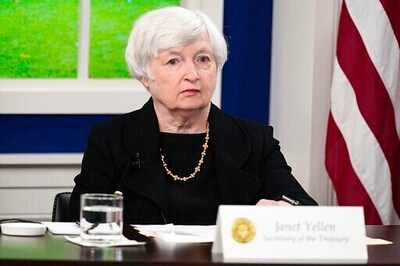
views
LONDON: Britain is likely to need to reintroduce some national coronavirus lockdown measures sooner rather than later, a leading epidemiologist said on Saturday, as new cases rose to their highest level since early May.
Neil Ferguson, a professor of epidemiology at London’s Imperial College and a former government adviser, told the BBC the country was facing a “perfect storm” of rising infections as people return to work and school.
Prime Minister Boris Johnson said on Friday that he did not want another national lockdown but that new restrictions may be needed because the country was facing an “inevitable” second wave of COVID-19.
“I think some additional measures are likely to be needed sooner rather than later,” Ferguson said.
Ministers were on Friday reported to be considering a second national lockdown, with new COVID-19 cases already at their highest in months, hospital admissions rising and soaring infection rates across parts of northern England and London.
“Right now we’re at about the levels of infection we were seeing in this country in late February, and if we leave it another two to four weeks we’ll be back at levels we were seeing more back in mid-March, and that’s going to – or could – cause deaths,” Ferguson said.
Government data on Saturday showed 4,422 new cases, 100 more than on Friday and the highest daily total since May 8, based on positive test results.
The true rate of infection is likely to be higher. Britain’s statistics agency said on Friday that around 6,000 people a day in England alone probably caught the disease during the week to Sept. 10, based on its random testing.
Scotland’s First Minister Nicola Sturgeon asked Johnson to meet her and the leaders of the devolved governments of Wales and Northern Ireland within the next 48 hours to try to ensure coordinated measures across different parts of the United Kingdom.
“We know from experience earlier in the year that speed and decisiveness of action is important in the fight against COVID,” she said.
EUROPE’S HIGHEST DEATH TOLL
Britain has suffered Europe’s highest death toll from COVID-19, with more than 41,000 deaths on the government’s preferred measure.
The sharp increase in infections has not yet led to a similar rise in new fatalities – in part because cases have been concentrated among younger people – but hospital admissions are now beginning to rise.
More than 10 million people in parts of northern and central England are already under some form of lockdown restriction, such as a ban on inviting friends or family to their homes, or visiting pubs and restaurants after 10 p.m.
London’s mayor, Sadiq Khan, said on Friday that tighter lockdown measures were becoming “increasingly likely” for Britain’s capital.
Police broke up a protest in central London on Saturday of more than 1,000 people opposed to existing lockdown measures, as the event did not comply with rules limiting public gatherings.
Ferguson served on the government’s main scientific advisory board until May, when he stepped down after breaking lockdown rules himself.
He said future lockdown restrictions did not need to be as strict as those introduced in March to be effective in slowing the renewed spread of the disease.
Britain’s capacity to test for coronavirus infections has also come under strain since schools in England reopened this month, with many people reporting that tests were unavailable or only possible at locations hundreds of miles away.
“We have a perfect storm right now, of people – as they have been told to do – getting back to normal, schools reopening, a surge in cases,” Ferguson said.
Disclaimer: This post has been auto-published from an agency feed without any modifications to the text and has not been reviewed by an editor




















Comments
0 comment